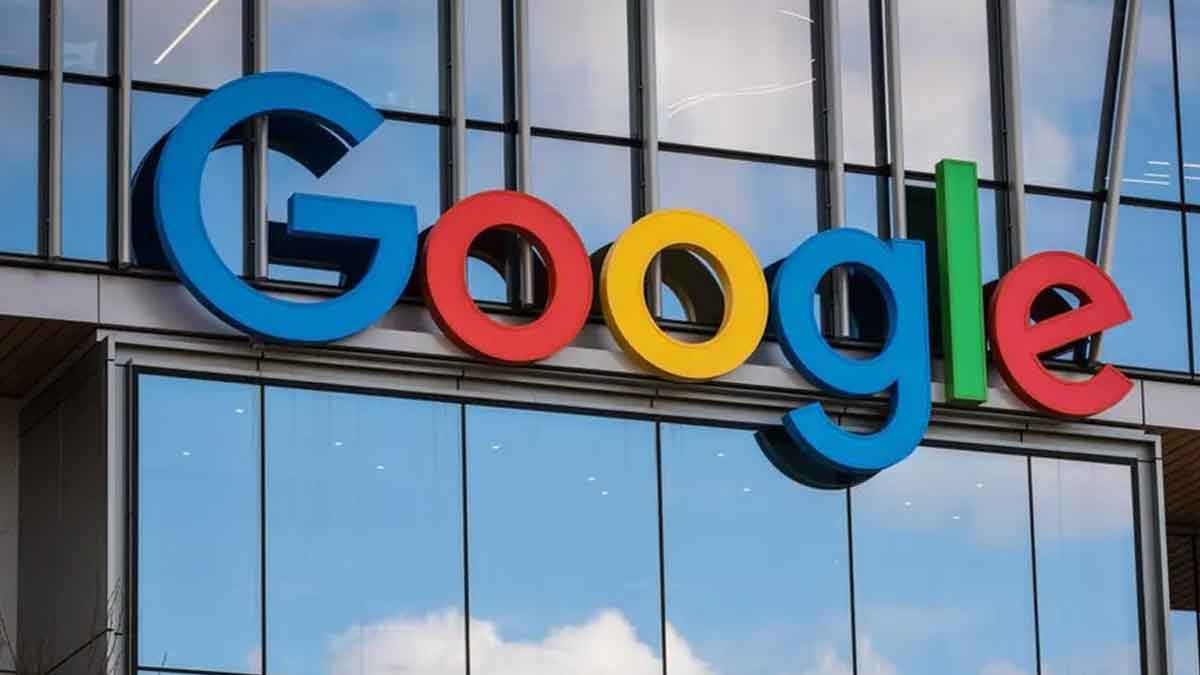- Home
- Billionaires
- Investing Newsletters
- 193CC 1000
- Article Layout 2
- Article Layout 3
- Article Layout 4
- Article Layout 5
- Article Layout 6
- Article Layout 7
- Article Layout 8
- Article Layout 9
- Article Layout 10
- Article Layout 11
- Article Layout 12
- Article Layout 13
- Article Layout 14
- Article Sidebar
- Post Format
- pages
- Archive Layouts
- Post Gallery
- Post Video Background
- Post Review
- Sponsored Post
- Leadership
- Business
- Money
- Small Business
- Innovation
- Shop
Recent Posts
Google Hit with Record Fine in Russia for Blocking Media

The Russian government has imposed an astonishing fine on Google amounting to approximately $20 decillion—a number with 34 zeros, which is significantly larger than the entire global GDP. This unprecedented action stems from a ruling by a Russian court concerning YouTube, the video-sharing platform owned by Google’s parent company, Alphabet. The court’s decision was triggered by YouTube’s choice to block channels operated by Russian state media, an action that has escalated tensions between the tech giant and the Russian authorities.
According to Russian officials, the fine was levied for “removing channels on the YouTube platform,” and the court has mandated Google to reinstate the blocked channels belonging to Russian broadcasters. Should the company fail to comply, it faces additional penalties that will double every day until they are paid within a nine-month timeframe, as reported by the Russian state-run news outlet, Tass.
The backdrop of this situation dates back to March 2022 when YouTube announced its decision to restrict channels linked to Russian state media, including well-known outlets such as RT and Sputnik. This move was part of YouTube’s broader efforts to enforce its policies against content that denies or downplays “well-documented violent events,” particularly in light of Russia’s invasion of Ukraine. Initially, the channels were blocked in Europe, followed by a global ban, leading to the removal of over 1,000 channels and more than 15,000 videos in just ten days, according to YouTube. However, the total number of channels removed since then remains unclear.
In the years leading up to this recent fine, Google had already begun accruing substantial daily fines in 2020. Following successful lawsuits from Russian state-run outlets Tsargrad and RIA FAN, the company was fined 100,000 rubles (around $1,028) for blocking their YouTube channels. These fines have reportedly doubled each week, contributing to the overall financial burden facing the tech giant. Moreover, approximately 17 Russian TV channels have lodged lawsuits against Google in Russian courts, reflecting a broader backlash against the company within the country.
Despite the overwhelming nature of the fine, it appears unlikely that Google will pay this amount. In its recent third-quarter earnings report, Google acknowledged “ongoing legal matters relating to Russia,” stating that the compounding penalties would not have a “material adverse effect” on its operations. Dmitry Peskov, the Kremlin spokesperson, described the 37-digit fine as “full of symbolism,” suggesting that it might prompt Google’s management to take the situation seriously and consider remedying it.
For context, the total estimated value of the global economy is around $110 trillion, as reported by the International Monetary Fund. In stark contrast, Google’s fine represents a minuscule fraction of this figure, illustrating the absurdity of the situation. As of the latest reports, Alphabet, Google’s parent company, holds a market valuation of approximately $2.1 trillion, further emphasizing the disconnect between the fine and the company’s financial capabilities.
Interestingly, YouTube became inaccessible to numerous users in Russia on August 8, although the exact reason for this blockage remains unclear. Prior to this, Russian lawmakers had indicated that upload speeds to YouTube in the country would plummet by 70% due to the platform’s perceived disregard for local laws. This series of events underscores the escalating friction between Russian authorities and social media platforms that are attempting to regulate content in alignment with their policies.
This situation forms part of a broader crackdown on Russian media outlets that has intensified in recent years. Social media platforms and U.S. officials have increasingly accused these outlets of engaging in disinformation campaigns, particularly in the wake of Russia’s invasion of Ukraine. The Biden administration has also accused Russia of meddling in elections through alleged disinformation efforts involving state-run outlets such as ANO Dialog and RT, formerly known as Russia Today.
In response to this growing concern, Meta, the parent company of Facebook and Instagram, has taken measures against Russian media. Reports emerged that Meta would ban RT and Rossiya Segodnya from its platforms, reflecting the wider initiative to combat misinformation. Earlier this year, Meta disclosed that Russia remains the largest source of “coordinated inauthentic behavior” across social media, following criticism over the company’s handling of Russian interference during the 2016 election.
In summary, the $20 decillion fine imposed on Google highlights the increasing tensions between tech companies and the Russian government, particularly in the context of content regulation and disinformation. As Google navigates these legal challenges, the implications of this fine could resonate far beyond the company’s operations in Russia, potentially influencing how global tech firms engage with state media and content policies moving forward.
Recent Posts
Categories
- 193cc Digital Assets2
- 5G1
- Aerospace & Defense44
- AI32
- Arts3
- Banking & Insurance11
- Big Data3
- Billionaires230
- Boats & Planes1
- Business309
- Careers13
- Cars & Bikes66
- CEO Network1
- CFO Network17
- CHRO Network1
- CIO Network1
- Cloud10
- CMO Network18
- Commercial Real Estate7
- Consultant1
- Consumer Tech157
- CxO1
- Cybersecurity54
- Dining1
- Diversity, Equity & Inclusion4
- Education7
- Energy8
- Enterprise Tech29
- Events11
- Fintech1
- Food & Drink2
- Franchises1
- Freelance1
- Future Of Work2
- Games135
- GIG1
- Healthcare75
- Hollywood & Entertainment158
- Houses1
- Innovation37
- Investing2
- Investing Newsletters4
- Leadership65
- Lifestyle10
- Manufacturing1
- Markets20
- Media184
- Mobile phone1
- Money13
- Personal Finance2
- Policy544
- Real Estate1
- Research6
- Retail1
- Retirement1
- Small Business1
- SportsMoney24
- Style & Beauty1
- Success Income1
- Taxes2
- Travel10
- Uncategorized6
- Vices1
- Watches & Jewelry2
- world's billionaires200
Related Articles
Musk and Ramaswamy Push $2 Trillion Federal Cuts via DOGE
Billionaires Elon Musk and Vivek Ramaswamy, co-leads of the Trump administration’s proposed...
By 193cc Agency CouncilNovember 23, 2024Alphabet Shares Fall 5% as DOJ Seeks Chrome Sale
Shares of Alphabet, the parent company of Google, dropped more than 5%...
By 193cc Agency CouncilNovember 22, 2024Carr’s FCC Nomination and Musk’s Potential Gains
President-elect Donald Trump has nominated Brendan Carr to lead the Federal Communications...
By 193cc Agency CouncilNovember 19, 2024Musk Joins Trump’s Call with Ukraine’s Zelensky
Billionaire Elon Musk played an unexpected role in a call between President-elect...
By 193cc Agency CouncilNovember 9, 2024















Leave a comment